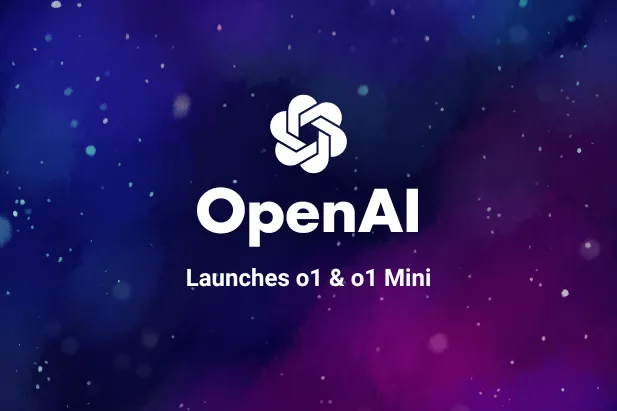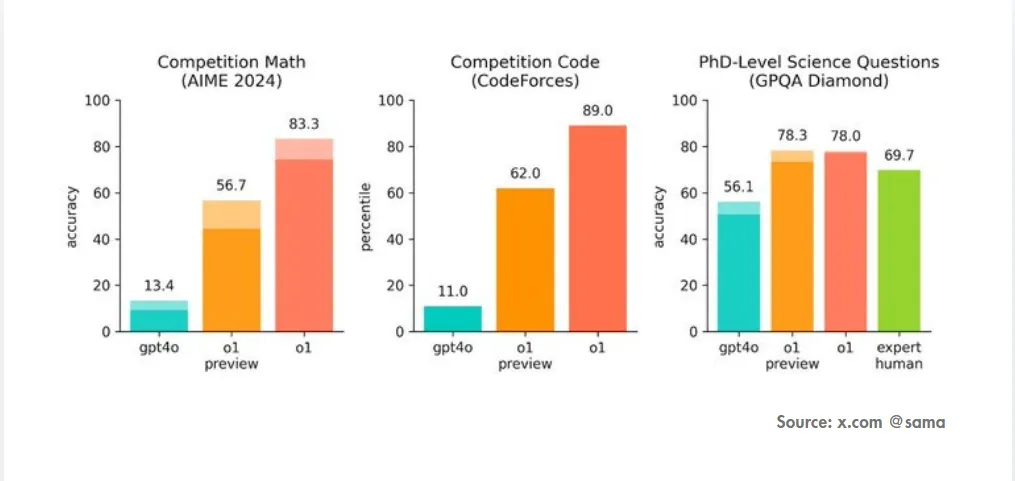
OpenAI Launches o1 & o1 Mini AI Models Capable of Reasoning
The landscape of artificial intelligence just took a giant leap forward with OpenAI's latest release of AI models designed specifically for reasoning through complex tasks. Dubbed o1 and o1-mini, these models showcase unprecedented advancements in solving challenging problems across various fields, particularly in science, coding, and mathematics. Let’s dive into what this means for the future of AI and why this new capability is such a big deal.
What Makes These Models Different?
Unlike traditional AI models that primarily generate responses based on large data sets, OpenAI's new o1 model spends more time thinking through problems before responding. Sounds human, right? This evolution means that the AI can better analyze, reason, and solve more difficult problems by trying different strategies, refining its thought process, and learning from its mistakes. This is especially evident in fields like physics, chemistry, and math, where reasoning is essential for problem-solving.

Key Features of o1 and o1-mini:
- Enhanced Reasoning Capabilities: These models are specifically trained to think critically and tackle complex tasks head-on.
- Problem-Solving: Whether it's challenging math problems or advanced coding issues, the o1 models demonstrate impressive abilities to provide accurate solutions.
- Increased Accuracy: In tests like the International Mathematics Olympiad, the o1 model outperformed previous versions, solving 83% of problems compared to 13% by older models.
- Efficiency: These models can break down problems much like a PhD student would, making them invaluable tools in both academic and practical applications.
How Do These Models Fit into Real-World Applications?
The ability to reason allows the o1 models to solve problems beyond the scope of traditional AI. For example, in scientific research, they can help scientists perform more accurate simulations, analyze experimental data, or even assist in discovering new materials or drugs. For developers, these models can help code more efficiently by understanding the problem deeply and generating solutions that save time and reduce errors.
This level of reasoning is also poised to revolutionize fields like financial modeling, risk analysis, and decision-making processes. Imagine an AI that not only processes your data but also thinks through outcomes, helping businesses make smarter choices based on thorough reasoning.
The Future of AI with Reasoning Capabilities
While these models are still in preview mode, they represent a significant leap towards human-like AI. The implications are vast. For instance, in education, students could soon be collaborating with AI models that can tutor them through complex subjects, providing not just answers but the reasoning behind them.
Similarly, in industries like healthcare, AI could assist in diagnosing conditions by reasoning through a patient's symptoms and medical history in a way that mimics a human doctor’s thought process.
Availability and Limitations
The new o1 and o1-mini models are currently available through ChatGPT Plus and Team users, with more widespread access expected soon. However, there are some limitations to these early versions:
- Limited Messages: Users are currently capped at 30 messages per week for o1-preview and 50 for o1-mini, though these limits may be expanded as the models improve.
- Specialized Use: While the models excel in tasks requiring reasoning, they lack some general-use features found in models like GPT-4o, such as web browsing and image uploads.
OpenAI’s launch of reasoning-capable models represents a new era in AI development. These models are not just capable of answering questions—they can think through complex problems and offer real solutions. Whether in science, coding, or decision-making, AI with reasoning capabilities is set to transform industries, and it's only the beginning.
Are you ready to work with an AI that thinks as much as it acts? With models like o1, we’re closer than ever to AI systems that can truly engage with human complexity. What do you think? Could AI soon reason as well as a human? Only time will tell, but the future is certainly promising.
Stay tuned for more updates on how these revolutionary models will be applied across industries, from tech to healthcare and beyond!

 Prasanth Parameswaran
Prasanth Parameswaran
